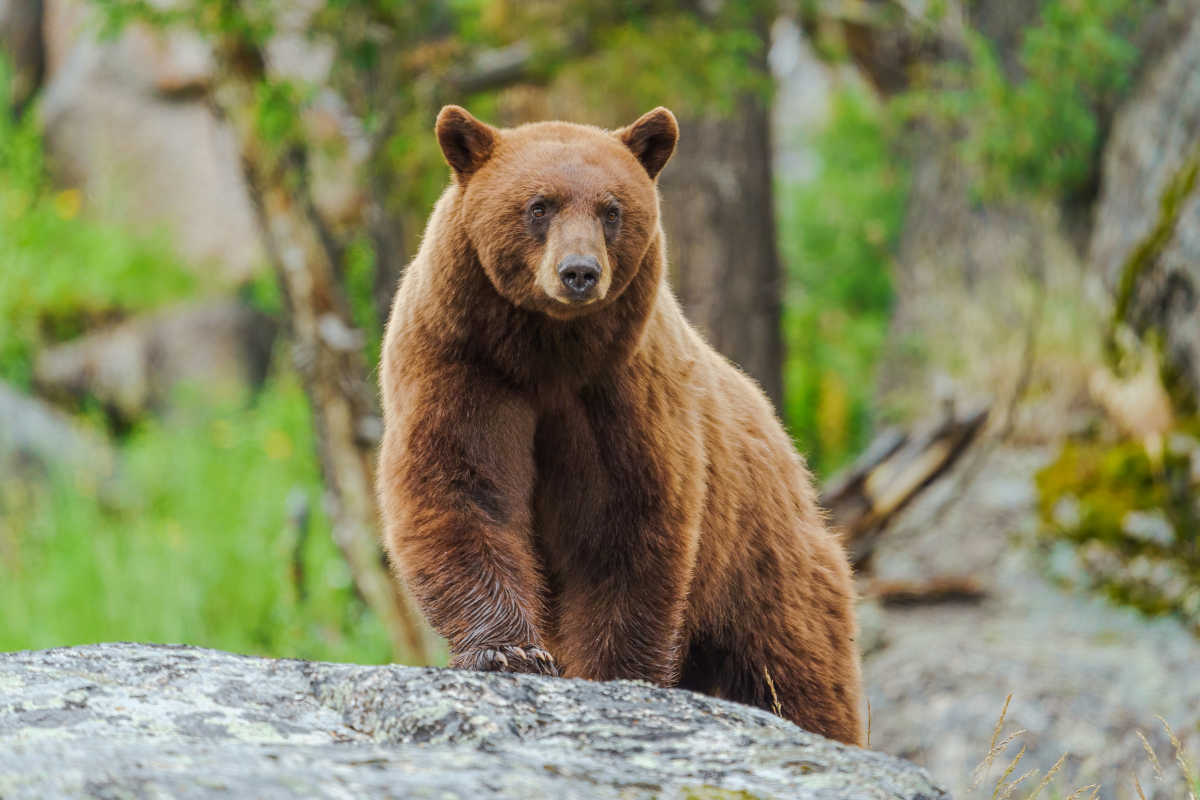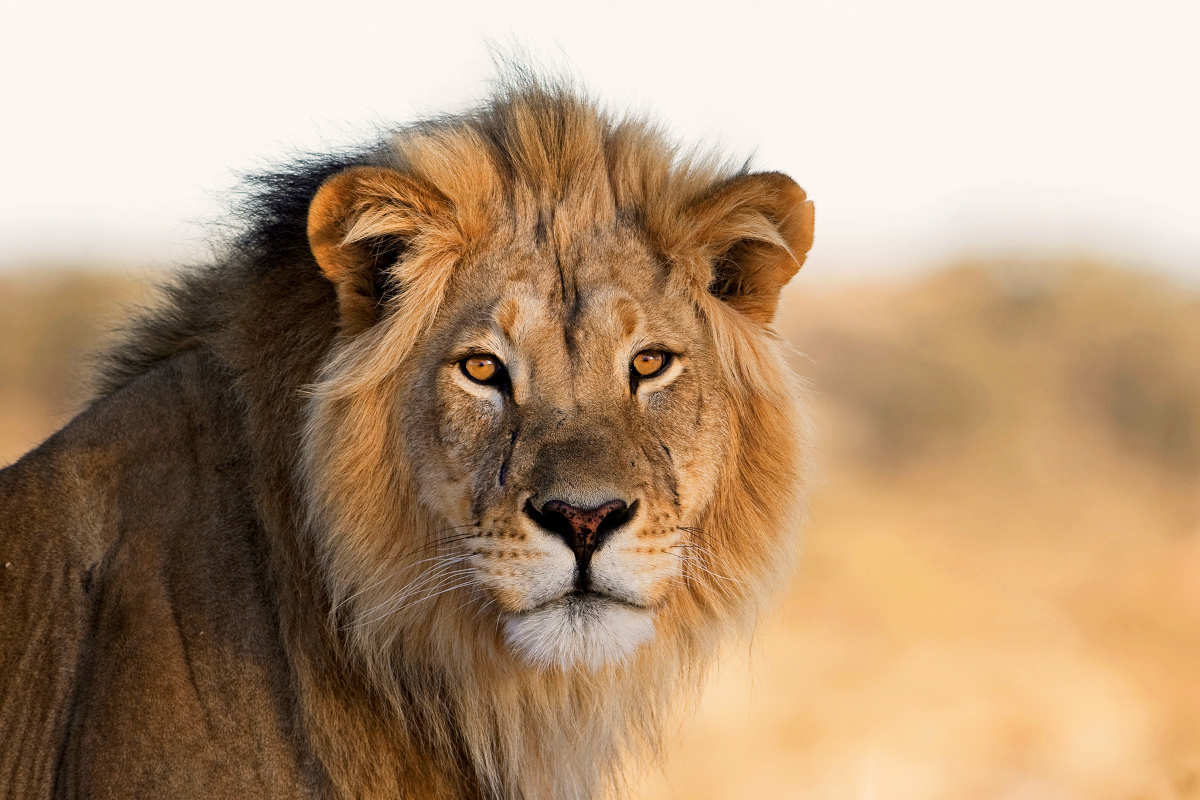Adapting to your natural rhythm could improve your workouts, says Lucy Gornall, with advice from sports nutritionist and sleep expert Rob Hobson.
🕒 6 min read
We all know that good-quality sleep is an essential tool in the gym-goers repertoire. But did you know that your own sleep pattern could be different to, for example, that of your training partner?
It's all down to what's known as your chronotype: a genetically influenced preference for sleep and wakefulness. Research published in the journal Chronotype, Sleep Behavior, and the Big Five Personality Factors, states: 'Chronotype refers to individual differences in sleep timing and in preferences for a given time of day.'
Rob Hobson, Sports Nutritionist and author of The Art of Sleeping, says: "These four different chronotypes – Lion, Bear, Wolf and Dolphin – affect when we sleep, our activity levels and also our energy and mood. Working with your chronotype can work wonders to help improve all these elements, as you'll be working with your body's ideal rhythm."
Plus, he adds that adapting your lifestyle to your chronotype can also help improve your training, as you'll be working out during times when your energy levels are high and you can get the most out of your workout.
Choose which chronotype suits you best below and see if adapting to your ideal workout and food windows will help you to reap greater rewards from your training sessions.
Dolphin

Bed late and up early? You might be a dolphin. Exercising late morning and mid-afternoon should suit you.
According to the Sleep Foundation, just 10% of the population are Dolphin chronotypes. Typically sensitive sleepers, and often insomniacs, Dolphins suit an 11pm to 6am sleep schedule.
A Dolphin's best workout times
Late morning (10am-12pm) and afternoon (2pm-4pm).
"Working out in the late morning allows dolphins to overcome morning grogginess and take advantage of rising energy levels," says Hobson. "In the mid-afternoon, Dolphins will experience another wave of alertness and energy."
What a Dolphin should eat and when
Breakfast (7am-9am)
"Enjoy a balanced meal with complex carbs, protein, and healthy fats to kick-start the day. Try wholegrain toast with avocado and eggs, or Greek yoghurt with berries and nuts," says Hobson.
Mid-morning snack (10am-11am)
Maintain your energy levels with a piece of fruit, a handful of nuts, or a smoothie with added whey protein.
Lunch (12pm-1pm)
Enjoy a light meal made up of lean protein, vegetables, and whole grains, such as salads with grilled chicken, quinoa, and mixed greens, or a vegetable stir-fry with tofu.
Afternoon snack (2pm-3pm)
Keep energy stable, particularly if you do choose to work out in the afternoon, with hummus and carrot sticks, an apple with almond butter, or mixed nuts.
Dinner (6pm-7pm)
Hobson suggests a lighter dinner with lean proteins, vegetables, and a small portion of wholegrains to promote better sleep.
Evening snack (8pm-9pm)
Peckish before bed? A small snack at this time can prevent night-time hunger. Try a banana or cottage cheese on two wholegrain crackers.
Wolf

Wolves are later to bed and later to rise than most. Evening and late morning workouts are best.
Just 15% of people are the Wolf 'night owl' chronotype, meaning they go to bed later, typically around midnight, and therefore wake up later than the other chronotypes, at around 7.30am.
A Wolf's best workout times
Evening (5pm-9pm) and late morning (10am-12pm).
"The evening time aligns with peak physical performance and energy levels for intensive exercise sessions," says Hobson.
Can't work out in the evenings? Hobson adds that lighter workouts or stretch sessions suit a Wolf's secondary energy peak in the late morning.
What a Wolf should eat and when
Breakfast (9am-10am)
Hobson suggests aligning your first meal with your natural hunger cues. Go for a balanced meal containing protein and carbs, such as scrambled eggs on wholegrain toast.
Lunch (1pm-2pm)
Keep energy up with a balanced meal of grilled chicken salad with avocado and quinoa, or a filling vegetable and bean soup.
Afternoon snack (4pm)
If you plan on working out in the evening, a small snack of nuts, a protein isolate shake or a protein bar, can maintain energy levels.
Dinner (7pm-8pm)
"Go for a well-rounded meal to keep up your evening energy. Try grilled salmon with sweet potatoes and steamed broccoli," suggests Hobson.
Post-workout snack (9pm)
Support recovery with a high-protein snack such as a protein shake or cottage cheese with berries.
Bear

Most people follow the Bear chronotype, with regularly spaced snack times and optimum exercise around natural energy peaks.
The most common chronotype is the Bear, with sleep (11pm) and wake (7am) times that often follow the sun's rhythm.
A Bear's best workout times
Hobson says that it's wise to train during your natural energy peaks. For a Bear these tend to be late morning (10am-12pm) and again in the afternoon around 2pm.
What a Bear should eat and when
Breakfast (7am-9am)
"Fuel the natural morning energy peak with oatmeal with fruits and nuts, or a smoothie with spinach, banana, and protein powder," recommends Hobson.
Mid-morning snack (10am-11am)
To prevent a rumbling stomach before lunch, opt for a small snack of Greek yoghurt with honey or a piece of fruit.
Lunch (12pm-2pm)
Try a quinoa salad with grilled chicken to keep your energy levels high for the afternoon.
Mid-afternoon snack (3pm-4pm)
An energy dip is common at this time so to help counteract this (and keep you away from the biscuit jar!) try hummus with carrot sticks, an apple with almond butter, or a small protein bar.
Dinner (6pm-8pm)
"Replenish your energy without feeling heavy afterwards and disrupting your sleep. Try lentils with vegetables or grilled salmon with roasted veg," says Hobson.
Evening snack (if needed)
"This helps to maintain blood sugar levels without interfering with sleep," explains Hobson.
Lion

Early to bed and early to rise makes a lion – get straight on the workout as the sun comes up.
The Lion chronotype is an early bird who also loves an early night, waking up around 6am after falling asleep around 10pm.
A Lion's best workout times
Early Morning (5am to 9am).
"This capitalises on a Lion's peak energy levels," says Hobson.
What a Lion should eat and when
Pre-workout snack (5am-6am)
"At this time, it's important to provide your body with necessary fuel without it being too heavy. Try a banana, a small handful of nuts, or whole-grain toast with almond butter," suggests Hobson.
Breakfast (7am-8am)
If you work out early, replenish your energy and kick-start your metabolism with a filling breakfast of scrambled eggs with spinach and whole-grain toast, or Greek yoghurt with berries and honey.
Mid-morning snack (10am-11am)
If your morning workout ends a little later, have a filling breakfast now. If you've already eaten, maintain your energy levels and prevent hunger before lunch with a piece of fruit or a handful of mixed nuts.
Lunch (12pm-1pm)
Keep your energy levels up throughout the afternoon, when you might start feeling sleepy due to your early start! Try a stir-fry or chicken salad with mixed greens and quinoa.
Mid-afternoon snack (3pm-4pm)
"Keep metabolism stable and stop energy dips getting in the way of productivity. A protein bar is a good choice, or opt for an apple with nut butter.
Dinner (6pm-7pm)
"An early dinner avoids sleep disruption and provides nutrients for overnight recovery. Try baked salmon with roasted vegetables, or a vegetable and lentil stew," says Hobson.









